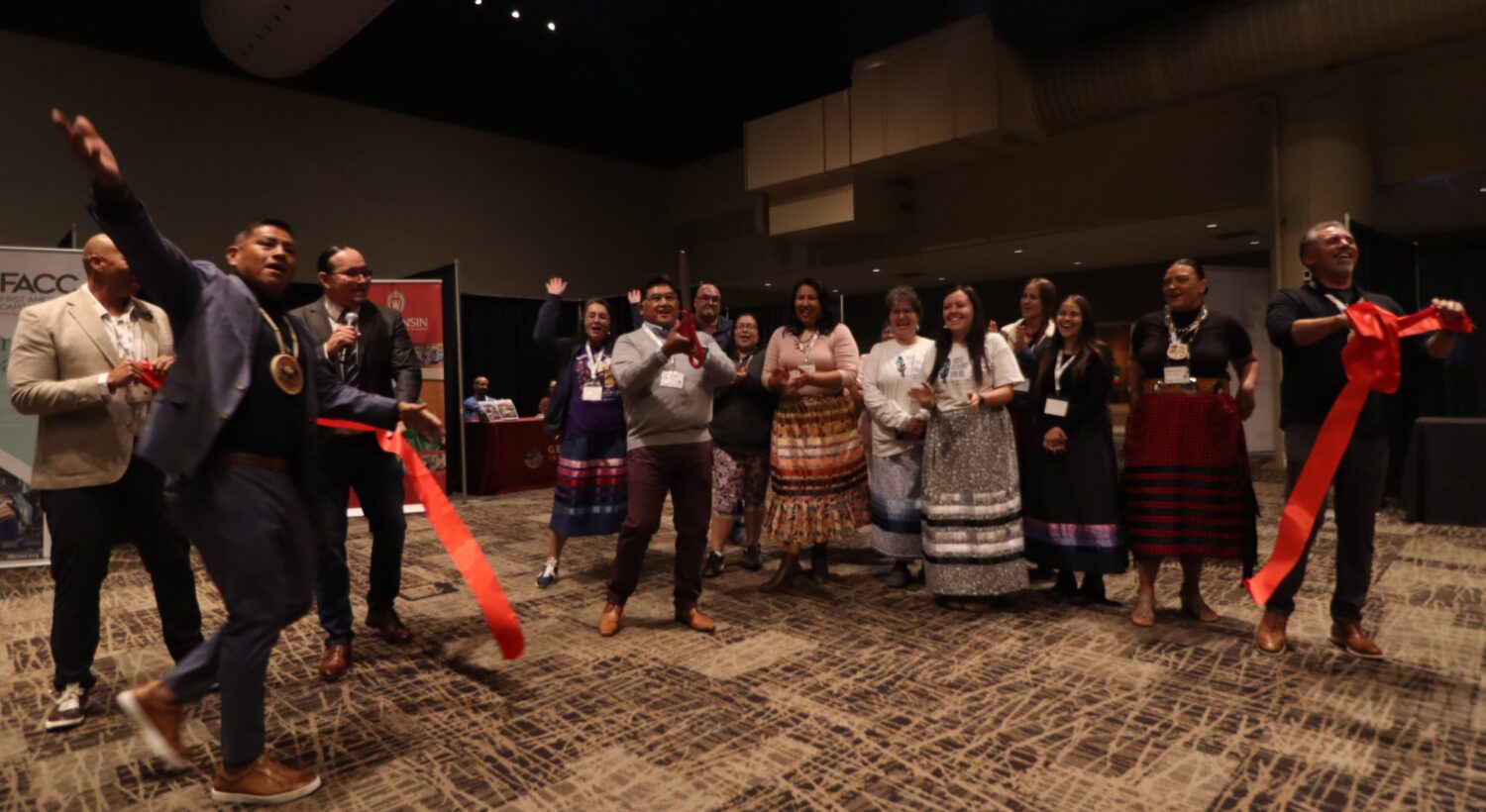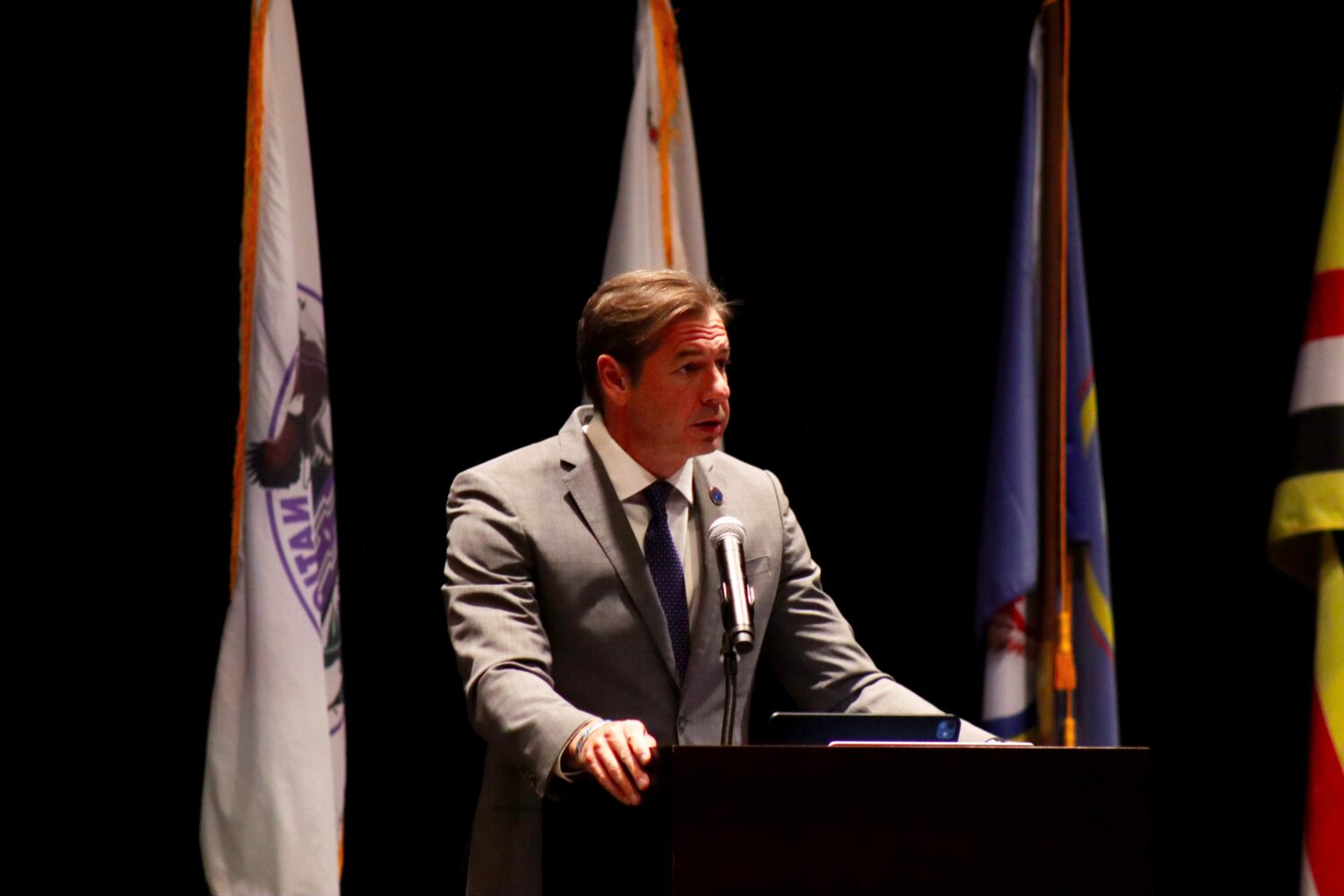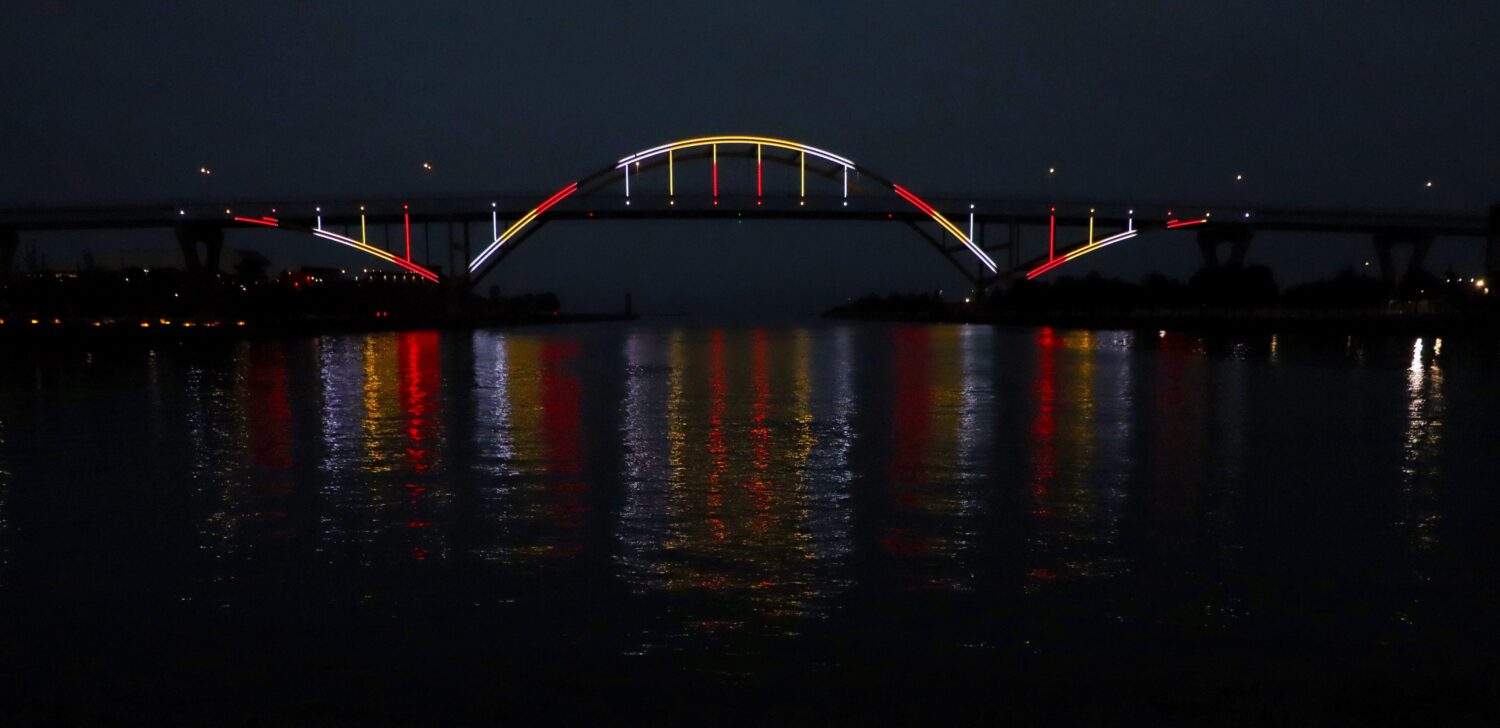
Indigenous Biz Con’s fourth year brought together more people than ever as hundreds from across the country gathered at Milwaukee’s Potawatomi Casino to hear from Tribal leaders and Native entrepreneurs.
For two days, Oct.13-14, members from tribes around the country came to Milwaukee’s Potawatomi Hotel & Casino, 1721 W. Canal St., for Wisconsin’s largest gathering for Indigenous business. Indigenous Biz Con is now in its fourth year after its founders from the Indigenous Business Group — local Native entrepreneurs Rob Pero, Zoar Fulwider and Collin Price — sought to create a central place for all things business in Indian Country.
Hundreds turned out for its largest gathering yet, but to Pero’s surprise, Indigenous Biz Con saw its largest out-of-state attendance. Roughly a quarter of all attendees were not from Wisconsin representatives from Tribes in all corners of the country.
“I think people understand now more than ever, we need to find ways to work together and to be in unity. The same rising tides really is what it is. It’s going to take all of us moving in the same direction to make this happen,” Pero said. “That call to action was put out to Indian Country and it was received louder than ever.”
This year’s theme touched on Pero’s point with “Rising Tides: Building Economies, Empowering Generations.”
Speakers for this year’s conference embodied the theme as “powerhouse” leaders, Pero called them. Sessions ranged from a variety of topics like entrepreneurship, contracting, cannabis as the next potential green rush for Indian Country, tribal politics and emerging opportunities for tribal enterprises.
This year’s keynote speaker was National Center for American Indian Enterprise Development’s (NCAIED) President Chris James. His keynote address marked his second time speaking at the annual conference.

(Photo by Omar Waheed)
James’s address focused on the current status of tribal enterprises and the sudden loss of funding and ensuing pauses on projects following funding freezes under the Trump Administration.
“We must be on the same page. We must and we will rise together because we are truly at a turning point,” James said. “The threats to Native contracting, the threats to our community and economies in general aren’t going away.”
The NCAIED lost around $2-3 million in its funding streams for its programs, James said. What that translates into is that support from the NCAIED for businesses across the country will not receive support it previously relied on.
James has no sense of when struggles from the funding changes will end, but he stands on unity between Tribes for a path to alleviate worries.
“I do know it’s going to take real leaders working together and putting aside their partisan priorities to do what’s right for the American people,” James said. “Make your voice heard. Many of you have even heard me say, ‘Everybody has a voice.’ So let’s use it. We need to stand up for what’s right, to hold tribal leaders and elected officials and everyone accountable. We need to hold ourselves accountable.”
James ended his keynote address by prompting attendees to take the NCAIED’s new Tribal Impact Survey. The survey looks to gauge how the Trump Administration’s policies have impacted Tribal Nations, businesses and communities.
Opportunities arise for Indian Country
Pero’s key takeaway for attendees is “there’s opportunities out there that are right in front of us.”
Tribes currently sit in a key position to leverage trade issues within the U.S., Pero said. Tribal land is considered a foreign trade zone. The designation opens avenues for new partnerships in business, as production on Tribal land is only subject to one duty upon exit. When raw goods enter the area, they can be manipulated into a product and then taxed a single time upon their export out of Tribal land rather than each individual item being subjected to tariffs.
Cannabis is an industry that Tribes can utilize. Pero, who also founded Wisconsin’s first Indigenous own cannabis company, Canndigenous, and the Indigenous Cannabis Industry Association, has been a long-standing advocate for cannabis reform and the potential for it to become the next wave for Indian Country, like gaming.
Pero sat on a panel with other Indigenous Cannabis entrepreneurs like Zach Wilson, from Minnesota’s Waabigwan Mashkiki; Micahel Decorah, from the Wisconsin Tribal Task Force on Cannabis; Candace Thompson, director of cannabis cultivation with Flac du Flambeau; and Marcus Gringon, project director at Hempstead Project HEART with the Menominee Nation.
“You’re talking about cannabis and THC, you’re talking about what we know is a billion-dollar industry,” DeCorah said. “When we look at hemp, when we look at the abilities of hemp in the future, where hemp is going, that’s looking like a trillion-dollar industry. That’s why it’s so important that tribes really take due diligence to understand and see if it’s viable for them.

(Photo by Omar Waheed)
New this year was Indigenous Biz Con’s first-ever pitch competition. Native-owned businesses from around the country pitched on day two of the conference for a chance to win $2,000.
Winners for the first pitch competition were Milwaukee-based OTG Muncheez and Michigan’s Shawano Trucking.
Day one capped off with the annual lighting of Milwaukee’s Hoan Bridge, where Milwaukee County Executive David Crowley gave a proclamation recognizing Indigenous Peoples’ Day.



